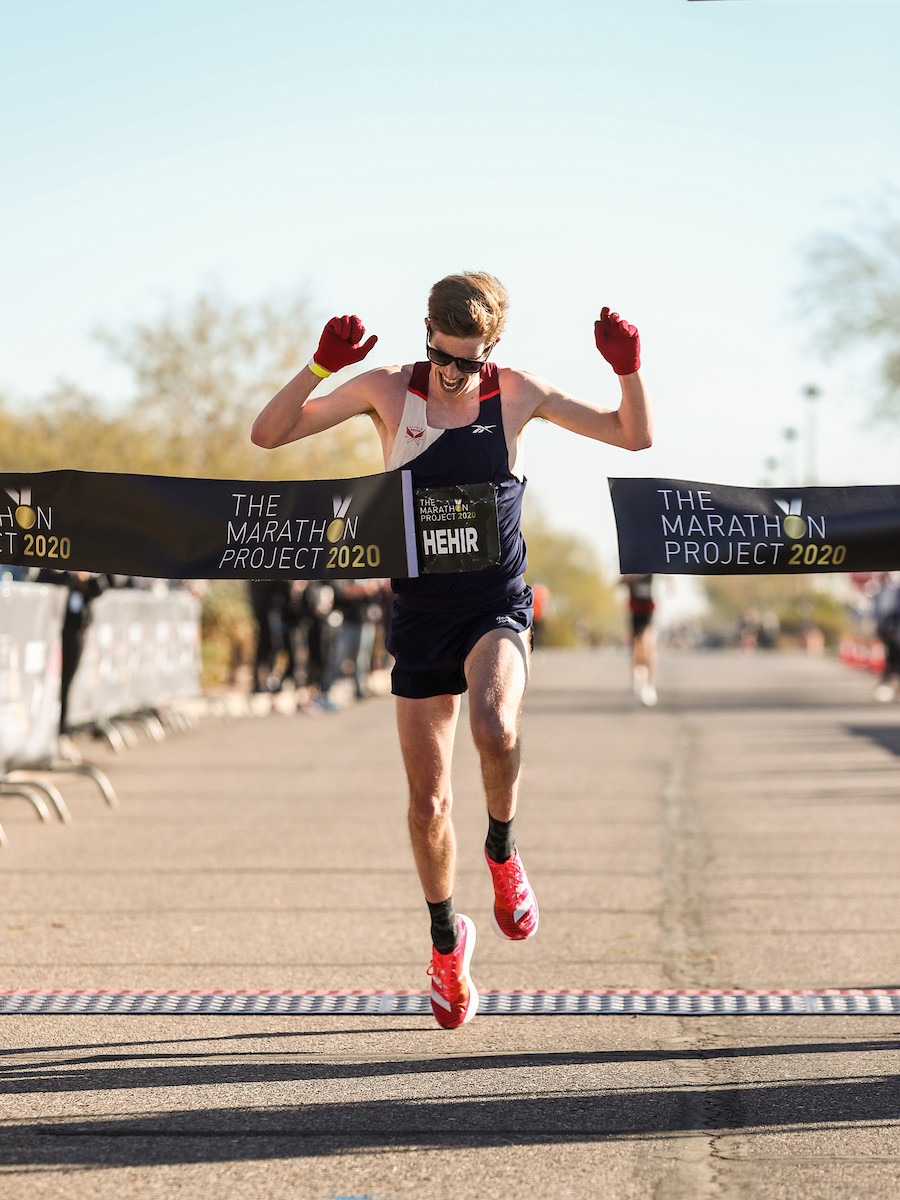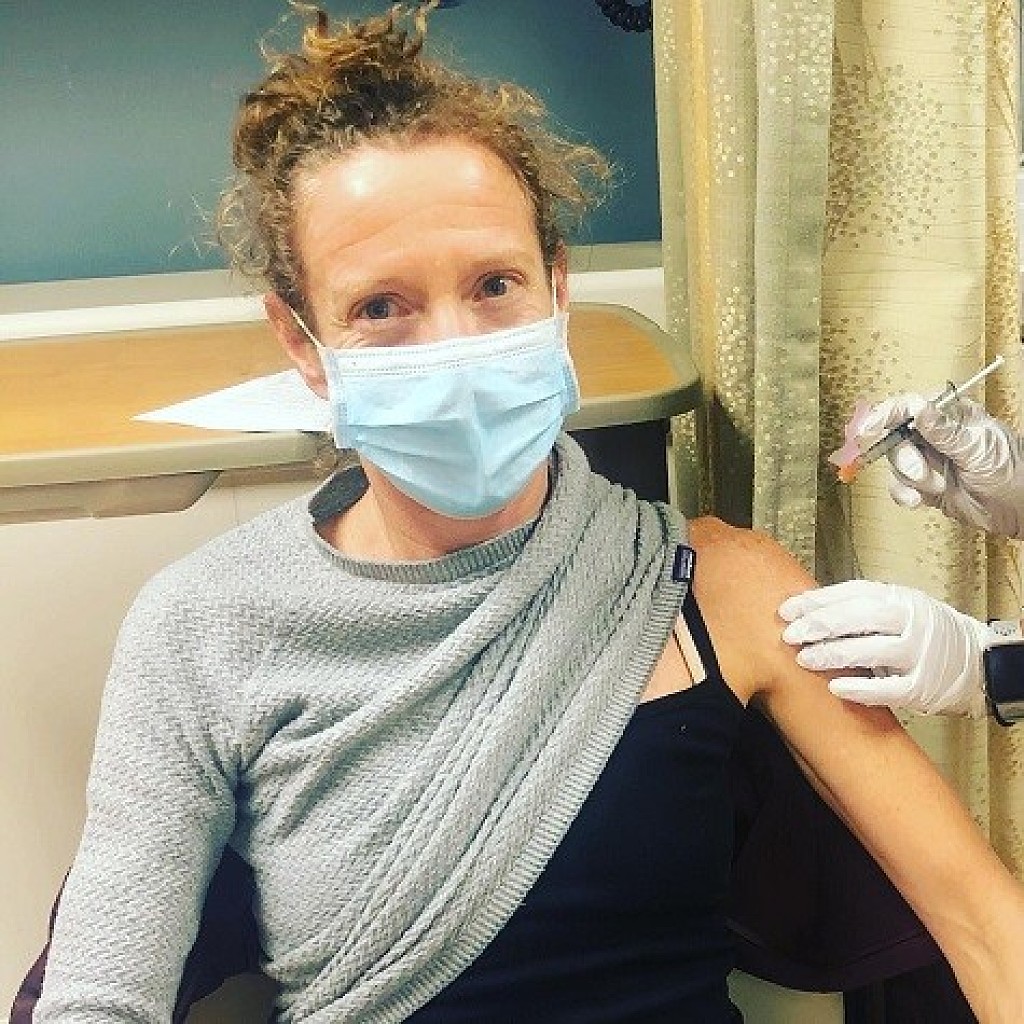Running News Daily
Running News Daily is edited by Bob Anderson. Send your news items to bob@mybestruns.com Advertising opportunities available. Train the Kenyan Way at KATA Kenya and Portugal owned and operated by Bob Anderson. Be sure to catch our movie A Long Run the movie KATA Running Camps and KATA Potato Farms - 31 now open in Kenya! https://kata.ke/
Index to Daily Posts · Sign Up For Updates · Run The World Feed
Medical workers who are elite runners are enthusiastic about receiving COVID vaccine
While some Americans are hesitant to receive a COVID-19 vaccine, a small group of elite runners who are also medical workers are enthusiastic about it after receiving their doses during this country's first wave of inoculations. Besides sore arms, brief chills, dizziness, and some nausea, these athletes report that receiving the vaccine has had no negative effects on their training. They feel good about being personally protected, but even better about being able to help protect their families and communities.
"I did this for everybody, obviously my family, my kids," said marathoner Roberta Groner, who is an office supervisor and registered nurse at a large family medical practice in New Jersey. "But also in the healthcare world we're around patients and we should be protecting them as well. Just building a stronger and safer community. The more people are vaccinated, the less spread we will have over time."
Only 3.8 million Americans, or 1.2%, are fully vaccinated, according to the Centers for Disease Control & Prevention, while 20.7 million have received their first dose (6.3%).

Groner, 43, finished sixth at the World Athletics Championships Marathon in September, 2019, a little less than six months after she set a personal best of 2:29:09 at the Rotterdam Marathon. She was among the first Americans to get vaccinated, receiving her first dose of the Moderna vaccine on December 22, then the second on January 19. She reported that she only had a sore arm after the first shot, but got chills the night after the second. Nonetheless, she was able to do a planned workout the next morning before going to work.
"That evening I had chills," she told Race Results Weekly in a telephone interview yesterday. "I don't know if I had a fever; I never checked. By the next morning I was fine. Got up, did a big workout and went to work." She continued: "I didn't decrease my mileage for the week. I ran 76 miles last week, so keeping on target with that. I didn't miss work or anything. My arm didn't get sore the second time."
Martin Hehir, 28, a fourth year medical student in Philadelphia who won The Marathon Project last month in Arizona with a personal best 2:08:59, had a similar experience to Groner, at least so far. He has received just the first dose of the Pfizer vaccine and will get the second on February 5.
"So, I felt totally fine," he said by telephone yesterday. "The old pinch in the arm. Arm was a little sore for maybe day or so, kind of on par with when I get the flu shot, anything like that. Totally felt normal, like a normal vaccine."
Hehir is ready for a more robust immune response after his second dose, and explained why.
"The whole thing, is based on some basic immunology," said the Reebok Boston Track Club athlete who is studying to become an anesthesiologist. "Your body sees something for the first time which is that first dose. It's slow and sluggish and has to figure out how to make the right antibodies. The second time around when it sees something there is a much more immunological response because your body is kind of primed. So, that's exactly what happens when you get the second booster dose. Your immune system ramps up. It's acting as if it has to fight something off."
As the pandemic grinds on, elite runners have seen their opportunities to compete shrink drastically. Mass-participation road races have all but stopped, and although small "micro races" have given athletes some chances to compete they offer little if any financial compensation. Everyone agrees that widespread vaccination is the only way that these events will come back.
"If there is any shot at having races again any time soon it's important that we get this vaccine out early, quickly, and widespread, not just in the United States, but the world," said Erin Finn, 26, twice the 5000-meter runner-up at the NCAA Indoor Championships for the University of Michigan. She is now a second year medical student there. "The quicker we get the vaccine, the less time the virus has to mutate and become resistant."
Like Groner, Finn was one of the first people to be vaccinated. She got her first dose of the Pfizer vaccine on December 30, and the second on January 20. She received an e-mail just a few days after Christmas inviting her to get her shot, something she called her "after Christmas present." Her parents, who are primary care physicians, have also been vaccinated.
"I'm feeling, I guess, just really lucky that Michigan was able to vaccinate all of its medical students so quickly," Finn told Race Results Weekly yesterday over the telephone. "I'm just feeling lucky to know that my family is safe, and if someone asks us how did it go we can just be a reinforcement that this vaccine is really, like, a blessing and nothing to be scared of, but instead something that unites us. I'm just really excited, to be honest."
All of the athletes stressed that while receiving the vaccine provided them with a good level of protection, that they needed to maintain all of their regular anti-COVID protocols, like mask-wearing, hand washing and social distancing. The science is not clear on whether vaccinated persons can still spread the virus, so they urged others to keep up all of their mitigating practices after they received their shots. They stressed that getting vaccinated was not a license to return to pre-COVID behaviors.
"There's a couple of things that we still don't know, and one is whether it prevents transmission, "Finn said. "And, while there is good theory to believe that it stops transmission, but we don't know that yet. It's important to still wear a mask, as frustrating as that is. In the mean time, the recommendations are for you not to change your conduct. We're still learning about the vaccine and we're still in the storm of the pandemic."
by David Monti
Login to leave a comment




